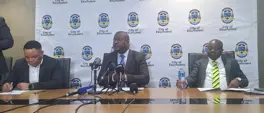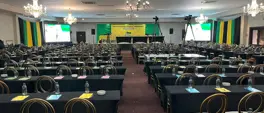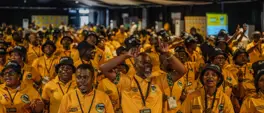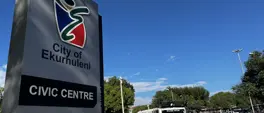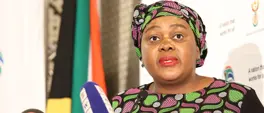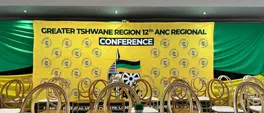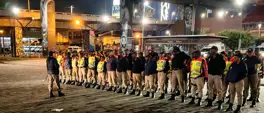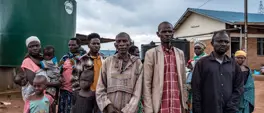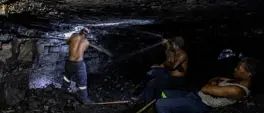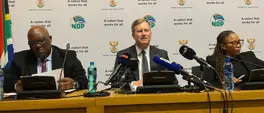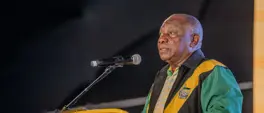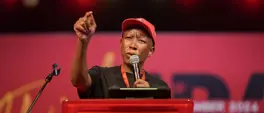MANDY WIENER: Can we re-birth a rainbow GNU?
Barbara Friedman
7 June 2024 | 13:36The ANC NEC has decided to try and form a Government of National Unity. How will this work and what will it look like?
Last night, ANC President Cyril Ramaphosa announced that the party had decided that the “best way forward” would be to form a GNU.
“This moment calls for the broadest unity… and multi-party co-operation is needed if we are to overcome these challenges,” said Ramaphosa.
The ANC is inviting political parties to join the government. It’s already been speaking to the DA, IFP, PA, NFP and EFF. It had been trying to speak to the MK too.
In forming the GNU, the parties had to have shared values including the respect of the Constitution and the rule of law, social justice and equity, human dignity, non-racialism, non-sexism, stability, transparency, integrity , community participation, and good governance.
Ramaphosa said that all agreements should be transparent.
In a GNU, we could see a scenario where Cyril Ramaphosa will remain President but all the parties represented in Parliament will be invited to join the executive.
It also means that Ramaphosa could appoint a deputy president who is not a leader of the ANC. Another party could also occupy the position of Finance Minister.
As I have said before, this is Chasing The Sun, rainbows and unicorns and kumbaya. It is a utopia of rainbow gnus!
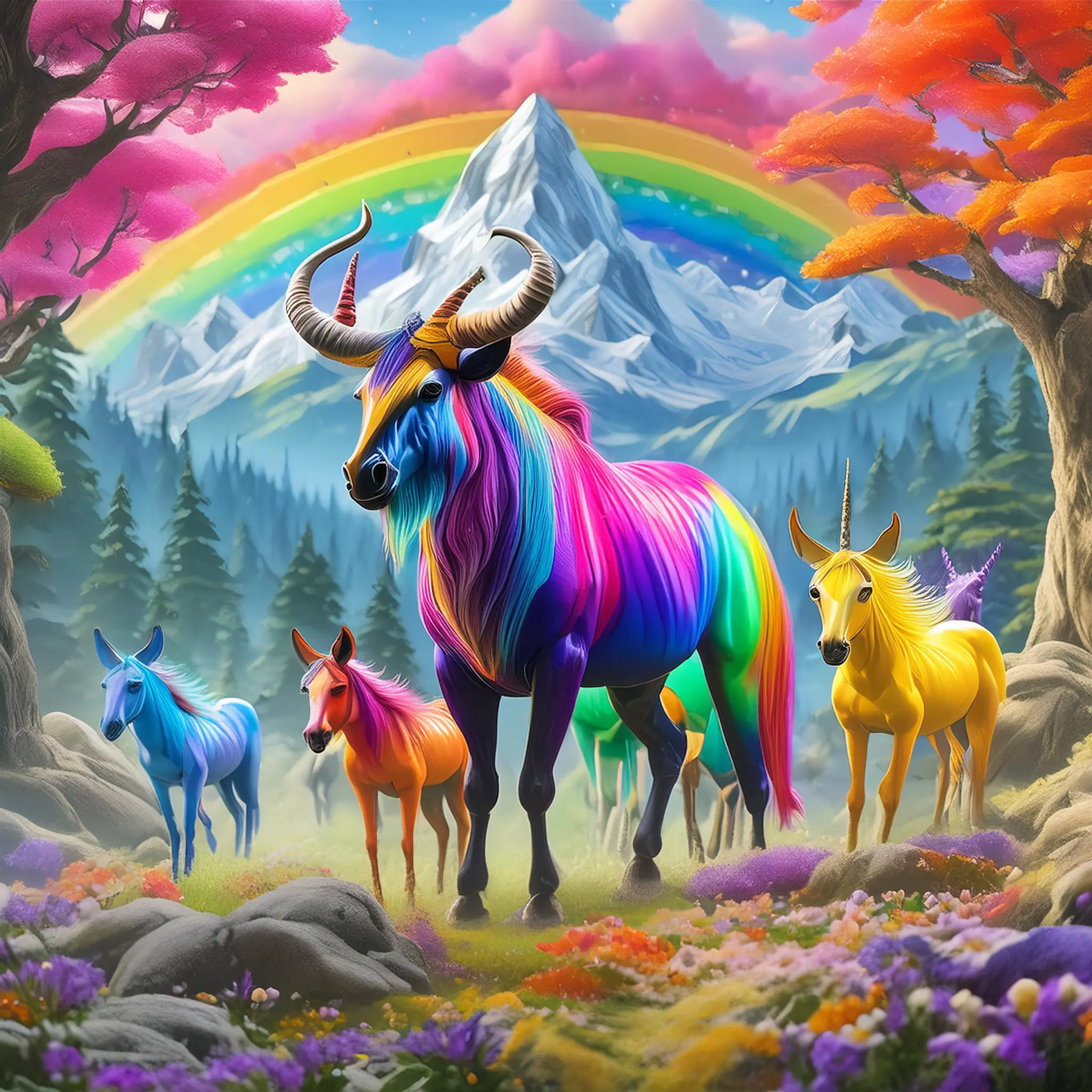
We have been here before remember. In 1994, after much negotiation, a GNU was formed with Nelson Mandela at the helm.
The structure of the Cabinet in 1994 was legislated. It was defined by the Interim Constitution:
• the president would be an elected by a joint sitting of both Houses of Parliament;
• each party with at least 80 out of the 400 National Assembly seats would be entitled to an executive deputy president from its MPs;
• the Cabinet would have not more than 27 members appointed by the president in consultation with the executive deputy presidents and the leaders of parties participating in the GNU;
• any party with at least five per cent of the total vote would be entitled to representation in the GNU in proportion to its vote in the election.
The April 1994 election results dictated the composition of the first Cabinet. They meant that the president would be ANC; that there would be two deputy presidents, one ANC and one NP; and that there would be 18 ANC ministers, six NP ministers and three IFP ministers
But 2024 is not 1994.
The mood of the country is different. The ANC has 40% of the vote and not over 62% as it did then. In 1994, South Africa was on the brink of civil war.
Former Finance Minister Trevor Manuel was a cabinet minister in the 1994 Government of National Unity. He told me on TMR that he believes a deal must be centered on improving the lives of citizens.
“Who or what holds the feet of a minority government to the fire to ensure that we can live out the constitutional values and the preamble makes very big commitments. And these are the issues that are important. Key must be the quality of public services and what happens in the lives of people. Key must be a commitment by every party that participates. You can’t have this complex of many parties without doing those kinds of things. The parties must all agree and the constitutional values must get precedence. Can you convene a government around these objectives? Can we live by the Bill of Rights?”
Tony Leon was the former leader of the DA and in opposition in 1994. He gives his views on what is different now to 1994 when it comes to forming a GNU.
“We really were involved in large scale violence, insurrection, possible secession in KZN, there was a lot of pressure. Obviously the assassination of Chris Hani propelled the parties towards making a settlement. Although there was a long time to negotiate, the crunch decisions including the GNU were only reached towards the very end precisely because of the external elements."
Leon, who is now part of the DA’s negotiating team, says good faith between parties is the cornerstone of reaching an agreement, “Good faith and good leadership. Those go a great way. Although there were terrible disputes between them, Mandela and De Klerk provided good leadership in their separate ways and although they disagreed fundamentally, I think there was a good degree of mutual respect. I would think those are absolute non negotiables if it’s going to be successful this time around.”
By choosing the ‘safer’ option of a GNU, the ANC has avoided making a controversial decision of going into a coalition with the EFF or MK or making a deal with the DA.
The ANC has also taken the moral high ground by asking all the parties to work together. Either you are with us or against us essentially. If parties choose to pull out, then it is on them and it is easy for the ANC to say that they tried.
A GNU will be extremely difficult to manage because of differing ideologies amongst participating parties. The 1994 was actually legislated and predetermined whereas now we don’t have that legislation in place. There would have to be ultimate clarity on bottom lines and agreements in place. The 1994 deal was negotiated over months. This time around they only have fourteen days.
There will have to be enormous political maturity and trust.
A GNU is idealist. It would be amazing if our politicians pulled it off and we could rebirth 1994. But unfortunately it is unlikely to happen in reality. The EFF’s Julius Malema has already tweeted that “We can’t share power with the enemy”. MK also won’t work with Ramaphosa as President. The DA and IFP says its not opposed to a GNU. Formal negotiations take place this weekend.
A GNU will ultimately be a coalition government that looks like a GNU and draped in rainbows. We have seen what a disaster this can be in the City of Joburg. Will it ultimately improve the lives of South Africans? Can we live by the Bill of Rights? Our politicians will have to decide if that is possible.
DP @FloydShivambu giving clarity on where the EFF stands on the issue of “Government of National Unity”.
— Economic Freedom Fighters (@EFFSouthAfrica) June 7, 2024
The DP says the EFF does not want to form part of a government with representatives of white colonial apartheid system. #EFFWayawaya pic.twitter.com/TdQ4Czj4xY
Get the whole picture 💡
Take a look at the topic timeline for all related articles.

